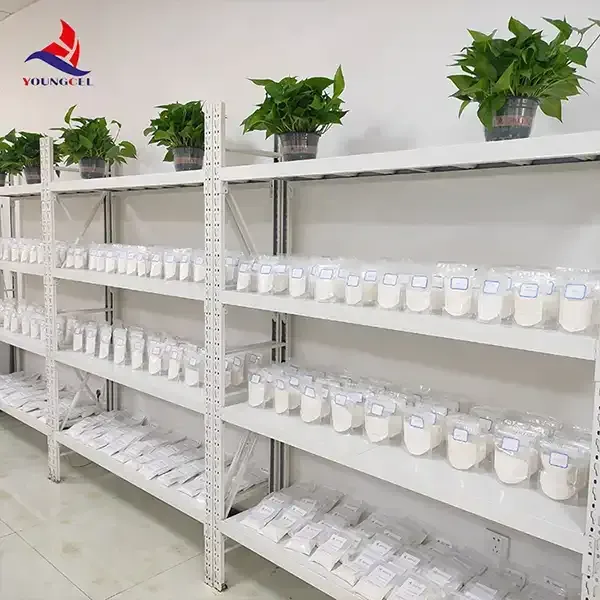Cellulose Coatings An Eco-Friendly Solution
In recent years, the demand for sustainable materials and eco-friendly solutions has surged across various industries. One of the most promising developments in this domain is the increasing popularity of cellulose coatings. Derived from natural cellulose, these coatings offer a range of benefits for both consumers and manufacturers alike.
Cellulose is a biopolymer that forms the structural component of plant cell walls. It is abundant, renewable, and biodegradable, which makes it an attractive alternative to synthetic coatings derived from petroleum-based products. The versatility of cellulose allows it to be modified in various ways, creating a wide array of coatings suitable for different applications.
One of the key advantages of cellulose coatings is their environmental sustainability. As the world grapples with the challenges of plastic pollution and climate change, the shift towards biodegradable materials is crucial. Cellulose coatings degrade naturally in the environment, minimizing long-term waste and reducing the carbon footprint associated with traditional coatings. By choosing cellulose-based products, manufacturers can contribute to a more sustainable future while meeting the growing consumer demand for greener alternatives.
Furthermore, cellulose coatings exhibit excellent barrier properties, making them suitable for applications in packaging, textiles, and coatings for various surfaces. In the food industry, for instance, cellulose coatings can be used to enhance the shelf life of products. They provide a protective layer that inhibits moisture and oxygen transfer, effectively preserving the freshness of food items. This not only reduces food waste but also offers manufacturers a sustainable way to package their products.
cellulose coating

In the textile industry, cellulose coatings are gaining traction as a method to impart water resistance and improve durability without resorting to harmful chemicals. This is particularly important as consumers increasingly seek out sustainable clothing options. By using cellulose coatings, manufacturers can create textiles that are not only functional but also environmentally friendly. Additionally, these coatings can contribute to a soft hand feel, enhancing the overall comfort of garments.
Moreover, the use of cellulose coatings is being explored in the realm of electronics and technology. As devices become more advanced and compact, the demand for effective protective coatings has grown. Cellulose coatings can provide durability and protection from environmental factors, such as moisture and dust, while maintaining the lightweight nature of electronic components. This innovation aligns with the broader trend of creating sustainable technology solutions that minimize environmental impact.
In terms of safety, cellulose coatings are generally considered to be non-toxic and safe for a variety of applications. Unlike some synthetic alternatives, which may contain harmful chemicals and VOCs (volatile organic compounds), cellulose-based products are less likely to pose health risks to consumers or the environment. This is particularly advantageous in industries such as food packaging and children's products, where safety and health standards are paramount.
Despite the numerous benefits associated with cellulose coatings, challenges remain. The scalability of production processes needs to be improved to meet increasing market demands. Researchers and manufacturers are actively working on developing more efficient methods for producing cellulose coatings, ensuring that they can be mass-produced without compromising quality or sustainability.
In conclusion, cellulose coatings represent a significant advancement in sustainable material science. Their biodegradability, excellent barrier properties, versatility, and safety make them an attractive alternative to synthetic coatings across various industries. As consumer awareness of environmental issues continues to rise, the demand for cellulose-based products is expected to grow. By embracing cellulose coatings, manufacturers not only position themselves as responsible participants in the global effort to reduce waste and pollution but also meet the needs of eco-conscious consumers. The future of coatings is undoubtedly leaning towards natural, sustainable solutions, and cellulose coatings are at the forefront of this transformation.
-
Rdp that The Revolutionary Polymer Powder Transforming Modern Construction MaterialsNewsAug.11,2025
-
Hpmc Powder that Versatile Additive for Detergents and Personal CareNewsAug.11,2025
-
Hpmc Hydroxypropyl Methylcellulose that Essential Building Material Additive from Shijiazhuang Gaocheng YongfengNewsAug.11,2025
-
Hydroxypropyl Methyl Cellulos Hpmc that Essential for Construction ApplicationsNewsAug.11,2025
-
Mhec Powder that Revolutionizing Construction Chemistry with Cellulose Ether SolutionsNewsAug.11,2025
-
Industri Hpmc that The Global Backbone of Advanced ConstructionNewsAug.11,2025




